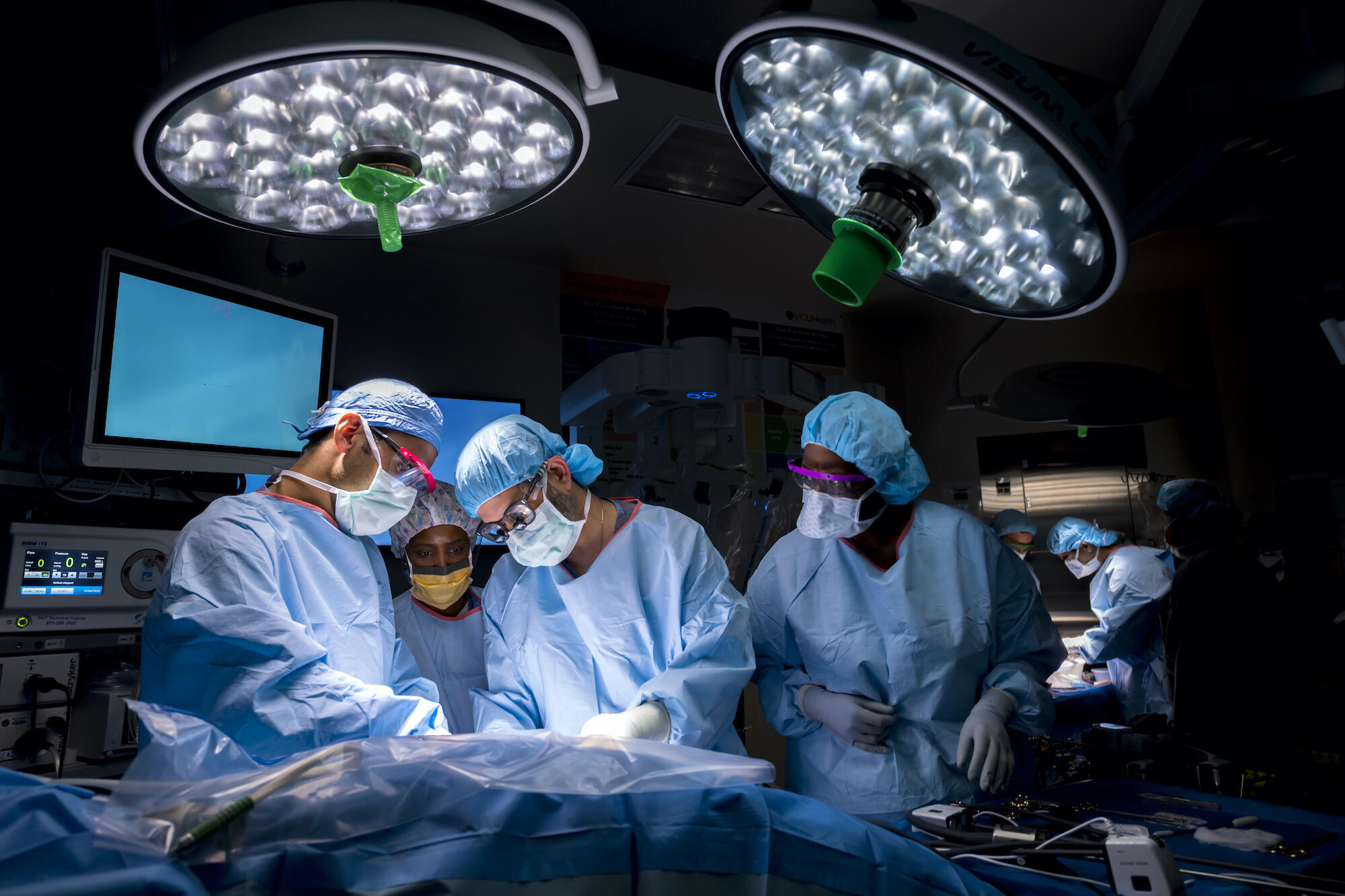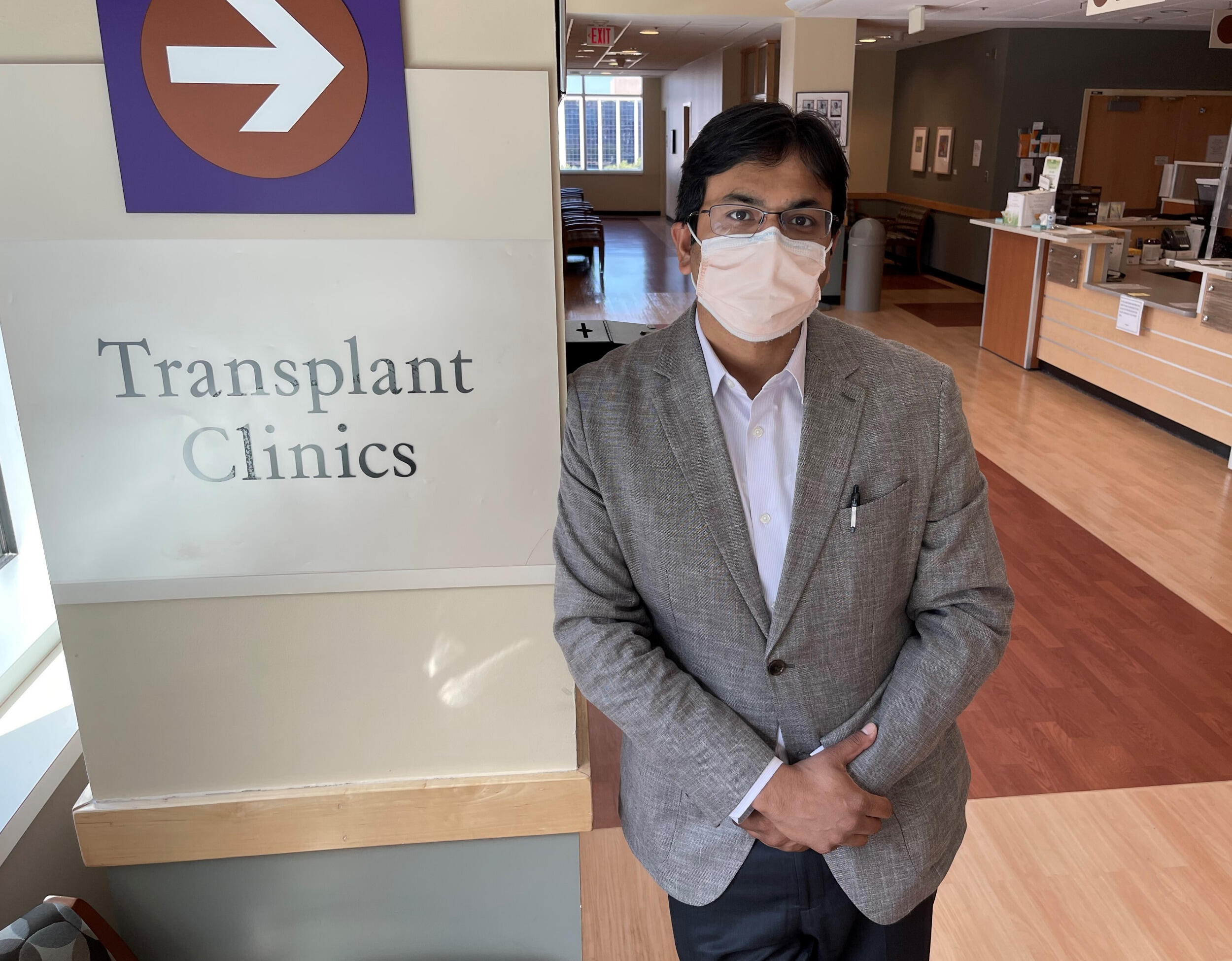
Oct. 20, 2021
Transplant research expands organ access and supports lower-income patients
Share this story
VCU Health’s Hume-Lee Transplant Center is committed to saving as many lives as possible each year. That’s no easy task amid a national organ shortage.
So for several years, transplant researchers have studied a unique process that allows transplant teams to safely and effectively transplant kidneys from hepatitis C-positive deceased donors into recipients who do not have the disease. The often-stigmatized condition has an extremely low chance — just 3% — of transferring to the recipient due to Virginia Commonwealth University’s unique protocols, according to recently published research.
In the past, kidneys from hepatitis C-positive patients might have been discarded in a nation with 100,000 people on the kidney waiting list — and where 12 people die daily waiting for a transplant.
The procedure can save money, too. Most transplant centers with kidneys from hepatitis C donors simply let the infection transmit, then treat recipients with eight to 12 weeks of therapy to eradicate the disease with direct-acting anti-viral drugs. These drugs are hard to get, cost about $26,000 or more per patient, and often trigger delays or denials in insurance coverage.
Research paves way for quality outcomes, lower cost of care
At VCU Health Hume-Lee Transplant Center, meanwhile, their unique protocol calls for recipients to receive a prophylactic regimen using sofosbuvir/velpatasvir, drugs used to treat hepatitis C in adults. The thinking: prevent transplant recipients from getting hepatitis C in the first place. That cost? Just $3,000, according to VCU-led research under peer review.
“In effect, using our strategy for the last 100 transplants has resulted in a cost savings of $2.3 million to payers,” said Gaurav Gupta, M.D., Hume-Lee’s medical director of kidney transplantation and a lead author on the research series. The research was funded by the VCU Presidential Research Quest Fund, VCU Health Pharmacy Services and Gilead pharmaceuticals.

Since the initial yearlong trial in 2018, Hume-Lee has successfully transplanted more than 150 kidneys from hepatitis C-positive donors without transferring chronic hepatitis C to recipients.
“We can reassure patients that there is a very low likelihood they will ever get hepatitis C,” Gupta said. “That helps a lot on the emotional side because most families, particularly spouses, are very concerned that their loved one will get the infection.”
Evolving study, evolving protocol
The research and resulting protocol have evolved in recent years. Originally, researchers tried two days of prophylactic drugs and saw transmission rates fall to 30%. At four days, transmission fell to 10%. The latest data, published in July, shows the current seven-day protocol reached a transmission rate of only 3%.
The increased supply of kidneys from hepatitis C patients, Gupta said, is driven in part as a result of the opioid epidemic. Sharing needles can transmit hepatitis C (60% of new cases are from opioid users), and overdoses cause deaths in an otherwise healthy person. “There’s sadly been a huge surge of organs — lungs, hearts, livers, kidneys — that have become available for transplant due to the opioid pandemic,” he said.
Currently, researchers are looking at ways to change preventative drugs to drop the risk of transmission to zero. Gupta is also looking at long-term outcomes to understand whether there are any consequences to the treatment. “We don't believe so,” he said. “But that’s what we do in science — measure things that may not have been accounted for before.”
New procedures address health care disparities
The research is also improving care and addressing social inequities: most kidney transplants at VCU are performed on African American and Latino recipients, a number are low income — and both groups are multiple times more likely to experience kidney failure than whites.
“Essentially the bulk of these hepatitis C transplants at VCU are going to historically disadvantaged populations, and providing them very good outcomes,” Gupta said. “From both a cost and care perspective, this research has helped us serve minority communities a lot more than we would have been able to in the past.”
For more information about kidney transplantation at VCU Health Hume-Lee Transplant Center, visit vcuhealth.org/transplant.
Subscribe to VCU News
Subscribe to VCU News at newsletter.vcu.edu and receive a selection of stories, videos, photos, news clips and event listings in your inbox.







